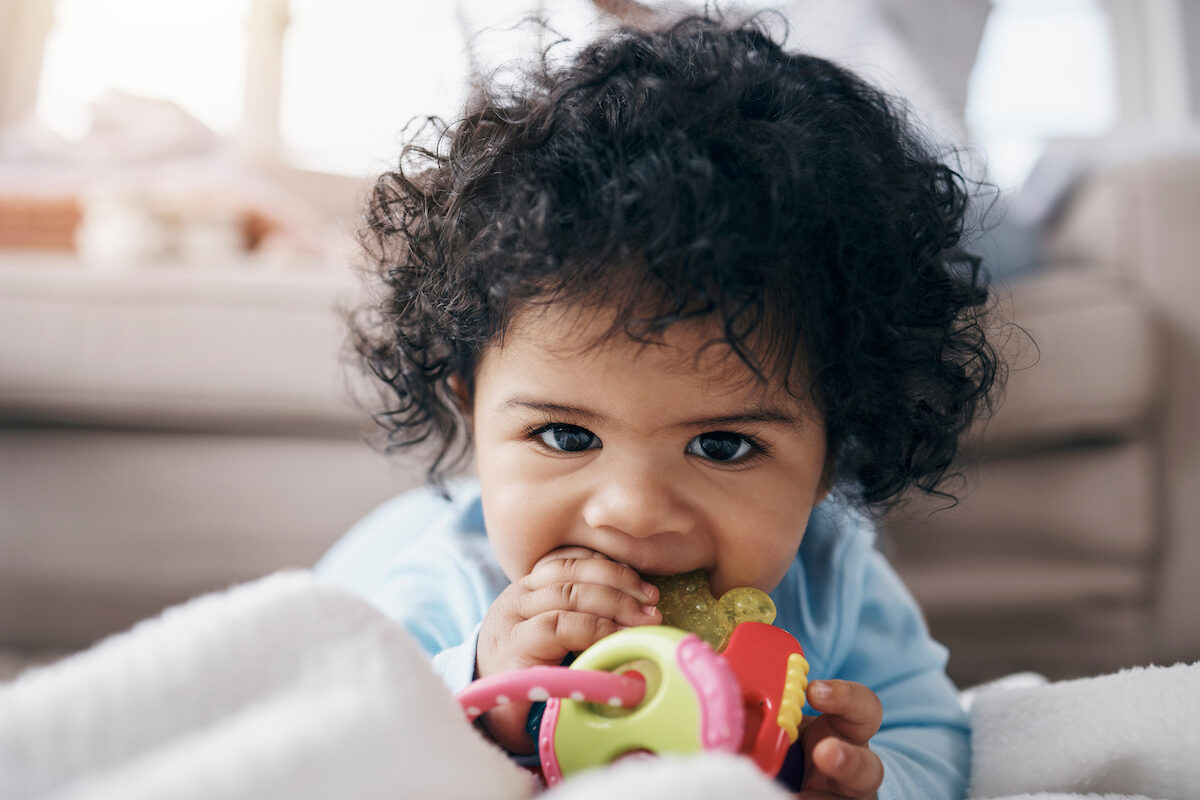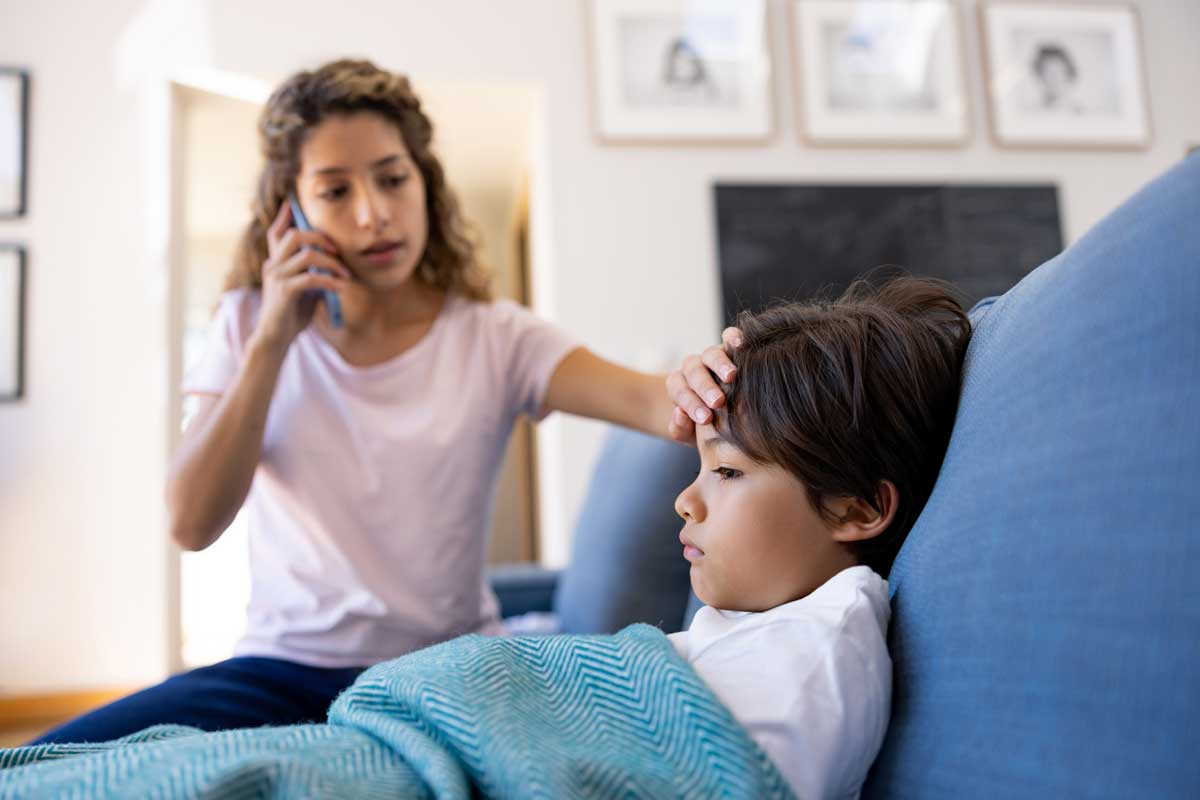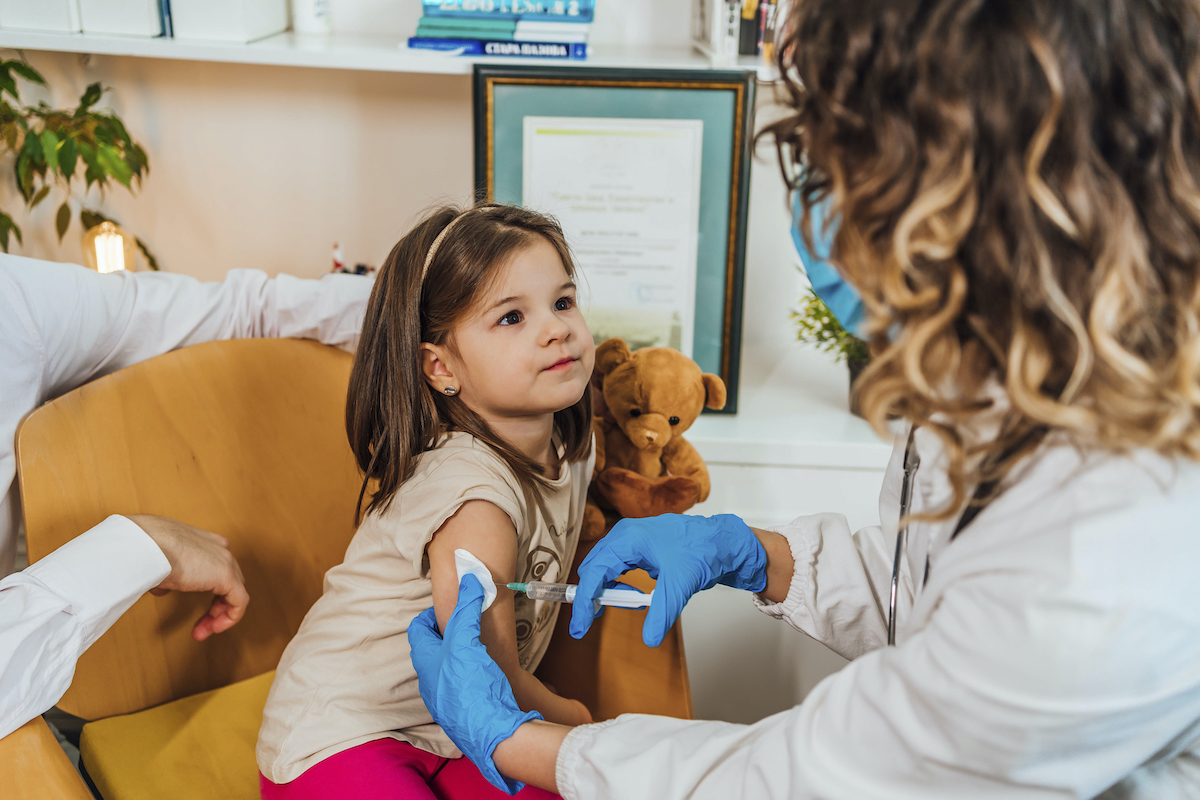Like all parents, I have a lot of experience with fever. I have lost count of the number of times I’ve been greeted on my return home from a run by a child holding out the ear thermometer, telling me, “You’re better at using it than Dad.” I like to say that practice makes perfect.
We all know what a fever is (temperature greater than 100.4℉) and what it means logistically (specifically: no school or child care). Fun fact: Carl Reinhold August Wunderlich, who died in 1877 and was credited for his measurements of human body temperature, decided this was the number that indicated a fever.

What is less clear, and prompts more confusion and disagreement, is how to deal with a fever. There are some people who fear fever (“fever phobia”) in their kids and treat any elevated temperature with medication. There are others who believe that treating fever is bad, that it prolongs illness.
Who is right? Neither extreme is right (this is ParentData’s unofficial tagline). More details below, but the TL;DR is that you should treat fever if it makes your child feel better, and not if they seem fine.
But let’s see the details! And HT here to an excellent post about this topic by Alasdair Munro, who has an overall great pediatrician Substack.
Note: This article is focused on fevers in kids over three months or so. Newborn fevers are a bit different — I talked about this on Instagram with Dr. Darria Long.
Should I be scared of any fever? Can my kid get too hot?
A fever is a body’s response to infection. It’s not perfectly understood why we have this response, but it is extremely common across animals, and generally it seems like the higher temperatures slow bacteria and viral growth and activate different parts of the immune system. The important point underlying this is that the fever itself isn’t the issue; it’s the underlying cause that may be a problem. If, as is usually the case with our children, the underlying cause is a childhood virus, we do not tend to worry overmuch.
Sometimes kids have really, really high fevers, and it can be kind of startling. My older kid in particular used to spike very high fevers, and I remember being quite alarmed when a temperature like 104.7° came up on the thermometer. However, a fever produced by illness in this way will not get too high for your child. And the fact that the fever is high isn’t necessarily a sign of a worse illness.
I make this point to people a lot when they ask about the best thermometer. Ear thermometers, for example, often give different results in different ears. But that’s fine, because it really doesn’t matter how high the fever is. By the time you are an experienced ill-child parent, you can also usually tell with the hand-on-the-forehead technique. I don’t want to brag, but the other day I said “102” based on the forehead, and it was 101.9° in one ear and 102.1° in the other. Who needs technology when you have hands?
Is it better not to treat it?
This is the most complicated question. From a logical standpoint, you can see why people ask it. I noted above that fever is a body’s response to infection, and we presume (because, evolution) that this is because fever is useful. Lowering body temperature might, therefore, make it harder to fight infection. But it is not obvious that this would be true, and our understanding of the mechanisms doesn’t tell us a full answer. It’s a question for data.
In general, that data suggests that treating fever doesn’t affect recovery in a positive or negative way. This has been best studied in critically ill patients. A well-known paper from 2015 showed in a randomized trial that outcomes were no different for critically ill (adult) patients whose fever was treated with acetaminophen versus not. They had the same mortality risk and the same time in the ICU.
There are some nice general summary papers (like this one) that pull together a lot of literature to suggest that treating fever doesn’t really have much impact in either direction on outcomes. In the specific case of childhood illness, a meta-analysis from 2013 argued a similar thing — treating fever doesn’t, on average, slow recovery.
Do I have to treat the fever?
Absolutely not. As noted above, the data suggests that treating a fever doesn’t improve outcomes. The only reason to treat it is so your child will feel better.
The pediatrician phrasing on this that I like is “Treat the child, not the fever.” A fever can make your kid feel terrible, and treating it so they feel better and can have a better day eating and watching TV in their bed may be a good idea. There is no reason not to. But: if your child seems to basically feel okay, there is simply no need to treat the fever. (The same goes for you, by the way.)
A corollary to this is, again, you do not need to worry too much about their actual temperature or take it all the time. Think about the mood, not the fever.
Is ibuprofen or acetaminophen better?
Ibuprofen seems to work better on fever in randomized trials. But both work well, so if you cannot find the Children’s Advil in grape and your child only approves grape medicine, go with the Tylenol.
If not based on fever, when should I be worried?
How do you know if your kid is sick enough to call the doctor, or go to the ER? When do you worry? If not at a fever of 104.7°, when?
The answer, which is both frustrating when initially said and then makes a lot of sense when you experience it, is: if they do not seem like themselves; if they seem really sick.
Sick kids sleep more, but they will wake up if you wake them. Similarly, they may be kind of whiny, but you can make them feel better. They’ll stay hydrated, even if they do not want to eat. If a child is totally inconsolable or is very hard to wake up or hasn’t been peeing at all, this is when you worry. And you’d worry about this even if there was no fever.
The bottom line
- A fever is a body’s response to infection. The fever itself isn’t the issue; it’s the underlying cause that may be a problem.
- In general, data suggests that treating fever doesn’t affect recovery in a positive or negative way. The only reason to treat it is so your child will feel better — “Treat the child, not the fever” is a good rule of thumb. If you decide to treat it, you can use either ibuprofen or acetaminophen.
- If your child doesn’t seem like themselves or seems really sick (inconsolable, very hard to wake up, or hasn’t been peeing at all), then you should be more concerned and call your doctor.

















Log in
Hi! Thanks for this, I was just looking for this information. I heard that the concern used to be that when the fever is too high then it denature proteins in the brain, causing brain damage. Is that even possible? Are there illnesses other than usual childhood infections that could cause that?
Our rules for medicating for fever are only to do it if the child is too uncomfortable to sleep, or if s/he has other concerning symptoms, like so hot he’s starting to shake. Our kids are 7 and 9 and we haven’t had to give tylenol for fever in over 5 years.
Thank you for this information. Came just in time for my child’s first fever.
Thank you for this! I’m so sick of doctor’s telling me not to treat a fever as a way to “speed the healing process” since it’s the body’s natural defense. I’ve not seen one study saying children get better faster when you let the fever “run it’s course”. I want my child to be comfortable! Lately though, this approach is also being advocated for stomach viruses. Basically saying the diarrhea and vomiting are good things and by stopping the body’s natural defense (i.e. diarrhea and vomiting) our children will stay sick longer. Are there any studies on that? Or is it just the same “logical” approach with no data to back it up?